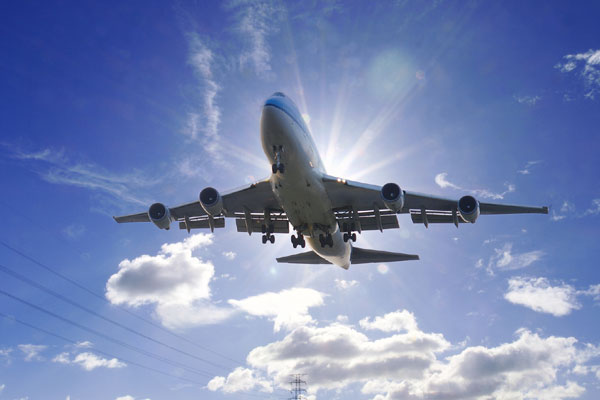
ME airline's freight demand up 4.3pc in February
GENEVA, April 2, 2020
Middle Eastern airlines’ cargo demand increased 4.3 per cent in February compared to the year-ago period and capacity also jumped by 6 per cent, according to figures released by the International Air Transport Association (Iata).
However, given the Middle East’s position connecting trade between China and the rest of the world, the region’s carriers have significant exposure to the impact of Covid-19 in the period ahead.
Airlines in Europe suffered a sizeable decline in year-on-year growth in total air cargo volumes in February 2020, while North American and Asia-Pacific carriers experienced more moderate falls. Middle East, Latin America and Africa were the only regions to record growth in air freight demand compared to February 2019.
Iata released data for global air freight markets showing that demand for February, measured in cargo tonne kilometers (CTKs), decreased by 1.4 per cent compared to the same period in 2019. Adjusting the comparison for the impact of the Lunar New Year, which fell in February in 2019, and the leap year in 2020, which meant an additional day of activity, seasonally-adjusted demand was down 9.1 per cent month-on-month in February.
By February, the negative impacts of the Covid-19 crisis on air cargo demand were becoming visible. The month witnessed several significant developments:
• Manufacturing production in China, one of the world’s largest air cargo markets, dropped sharply due to widespread factory closures and travel restrictions.
• Global export orders fell to a historically low level. The global Purchasing Managers Index (PMI) is in contraction territory, with all major trading nations reporting falling orders.
• Significant cargo capacity was lost as a result of airlines reducing passenger operations in response to government travel restrictions due to COVID-19, severely impacting global supply chains.
Cargo capacity, measured in available cargo tonne kilometers (ACTKs), dropped by 4.4 per cent year-on-year in February 2020. This is subject to the same distortions as the non-seasonally adjusted demand numbers.
“The spread of Covid-19 intensified over the month of February, and with it, the impact on air cargo. Adjusted demand for air cargo fell by 9.1 per cent. Asia-Pacific carriers were the most affected with a seasonally-adjusted drop of 15.5 per cent. What has unfolded since is a story of two halves. The disruption of global supply chains led to a fall in demand. But the dramatic disruption in passenger traffic resulted in even deeper cuts to cargo capacity. And the industry is struggling to serve remaining demand with the limited capacity available. We only got a first glimpse of this in February. Among all the uncertainty in this crisis, one thing is clear—air cargo is vital. It is delivering lifesaving drugs and medical equipment. And it is supporting global supply chains. That’s why it is critical for governments to remove any blockers as the industry does all it can to keep the global air cargo network functioning in the crisis and ready for the recovery,” said Alexandre de Juniac, Iata’s director general and CEO. - TradeArabia News Service







